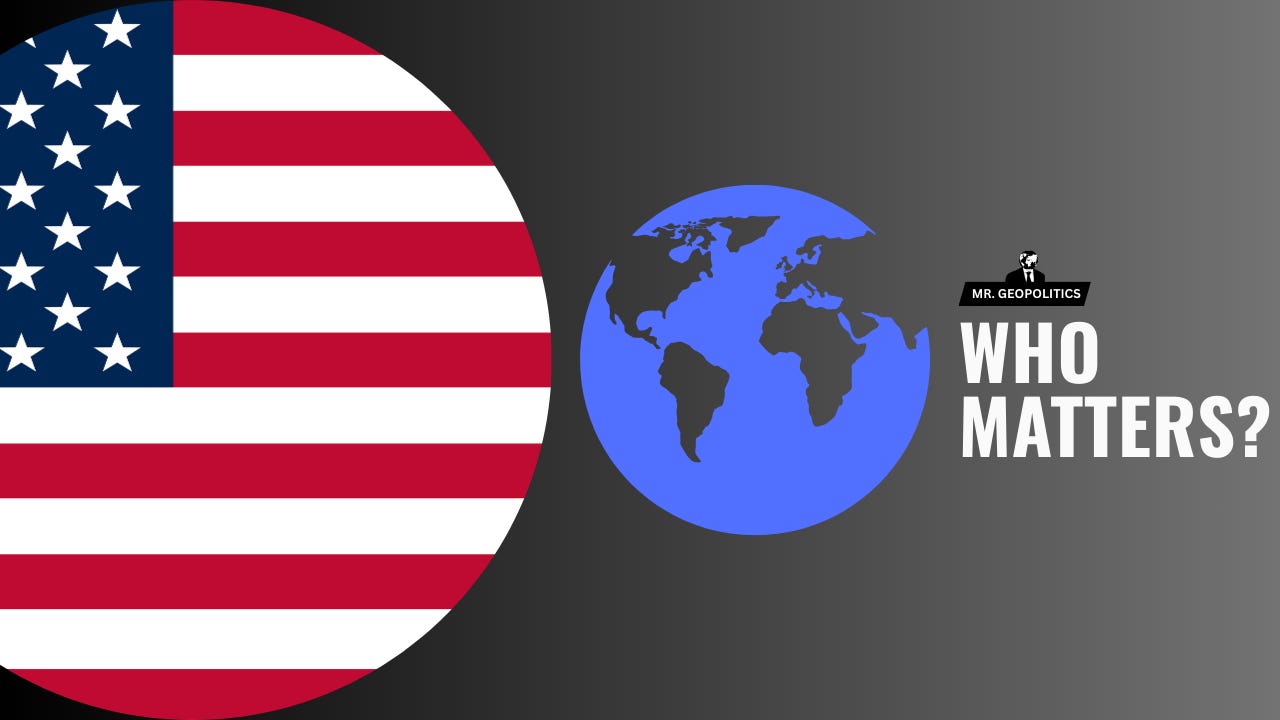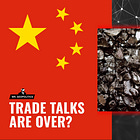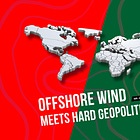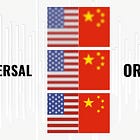The World According to America
US actions are causing the power of nations to rise or fall
From the streets of Kyiv to the oil fields of Pakistan, America is no longer just influencing global events — it is determining who matters and who doesn’t.
The West? Trade deficits and NATO targets now outweigh stewarding the globe as China rises. A defining relationship with India? Failure to convince Russia to end the war meant others paid the price. South America? Commodities like copper and Brazil’s national politics now displace long-term strategy.
📣 POPULAR INSIGHTS ON THIS TOPIC
As the US takes action, the veil surrounding America First is lifting. What is being exposed is ugly: an ultimatum to friend and foe to capitulate and welcome America’s ideas, demands, and desires, or else.
This is not how America First was “explained” over the years, where the US champions its national interests, others do too, and the world achieves some post-globalization utopia, underpinned by populism, nationalism, and sovereignty. Instead, US actions are forcing nations onto a path riddled with disruption, disorder, and deals and treaties defined by transience.
What America is doing, in the pursuit of geoeconomic supremacy, carries an abrasive message: the power and importance of other nations are being determined by how America treats them.
Few examples reflect what America is doing better than the Ukraine-Russia conflict.
The US efforts to end the war represent a crisis of relevance for Europe. Forget the decision to limit the involvement of Ukraine in direct talks with Russia, creating a dual-track of diplomacy (i.e., US-Russia, US-Ukraine) that has only led to miscommunication and confusion. By refusing to include the UK, France, Germany, or other European states in discussions, Trump has relegated Europe to the sidelines of solving a European conflict, the worst since WWII. And, with Europe preoccupied with the war, the US has masterfully entered the Caucasus, establishing a new American footprint in Eurasia through a peace deal between Armenia and Azerbaijan, which the EU will have to adapt to as it eyes that same region for new members (like Georgia).
In the eyes of the rest of the world, Europe’s power has dropped. Not because it cannot solve the Ukraine war without America. But because America is attempting to solve the Ukraine war without Europe.
As the scales of relevance shift in Europe, they are swinging hard in South Asia.
The India-Pakistan war in May, teetering on the brink of a nuclear exchange, has reversed over 30 years of American geostrategy focused on embracing India. Instead of staying neutral or siding with India, the US has returned to its Cold War position, putting Pakistan first, like embracing Asim Munir, the Pakistani general who oversaw military operations against India, announcing a project to develop Pakistani oil reserves, and to top it all off, punishing India with 50% tariffs over its energy imports from Russia.
Unbeknownst to both Islamabad and New Delhi, when the fighting broke out over three days, their status would not be changed by each other’s actions, but by America’s.
For the current US administration, Pakistan and India are suddenly in the same category, with the former having equal or greater importance than the latter. This is a historic achievement for Pakistan, a nation long treated as teetering on the brink of failure and eclipsed by India in every regard.
For India, it is no longer an emerging superpower being courted by the world on the threshold of being treated as an equal to the West or China. Still gripping global ambitions, India has returned to simply being a rising power.
Of course, America could always make nations “more” or “less.”
But never before did the US take bold action towards so many states simultaneously. Now, the US is painting allies and adversaries with the same brush, leading to an outcome that many have not planned for: their reputation, status, and perception are being altered in unexpected ways.
However, as the US redesigns its place and position in the world, it faces “geopolitical karma.” The tariff delays, policy U-turns, and restart of critical exports, all of which surround the US trade talks with China, reflect a diminished status of the world’s sole superpower. The Chinese played a single card, cutting access to rare earths, and America has reopened the taps, from jet engines to chips.
What began after the Liberation Day tariffs in April has caused American power to drop, and China’s to rise. To get a trade deal across the line, the US must heed China’s demands, like access to advanced AI chips, not the other way around.
Conclusion
In a world overrun with unfamiliar behavior, many focus on the immediate and miss the bigger transformations. One of them: the perception and relevance of nations are in flux, driven largely by America’s actions under the banner of America First.
This is about far more than optics. The parameters defining what a nation can or cannot do are shaped directly by real and perceived power. A country seen as rising attracts partners and investment; one seen as stagnant sparks hesitation.
The new headache for many is securing their status in a disruptive geopolitical landscape. To do this, governments must accept they are not entirely in control, no matter how brash or bold they act. In a volatile world, the power to define relevance is itself the ultimate power. And in this world, power is no longer earned — it’s assigned. For now, America is holding the pen.
-ABISHUR PRAKASH AKA. MR. GEOPOLITICS
Mr. Geopolitics is the property of Abishur Prakash/The Geopolitical Business, Inc., and is protected under Canadian Copyright Law. This includes, but is not limited to: ideas, perspectives, expressions, concepts, etc. Any use of the insights, including sharing or interpretation, partly or wholly, requires explicit written permission.
Have questions or thoughts? Let’s talk: mrgeopolitics@substack.com
If you like Mr. Geopolitics, your colleagues might too.
Feel like doing something unique for somebody important?








